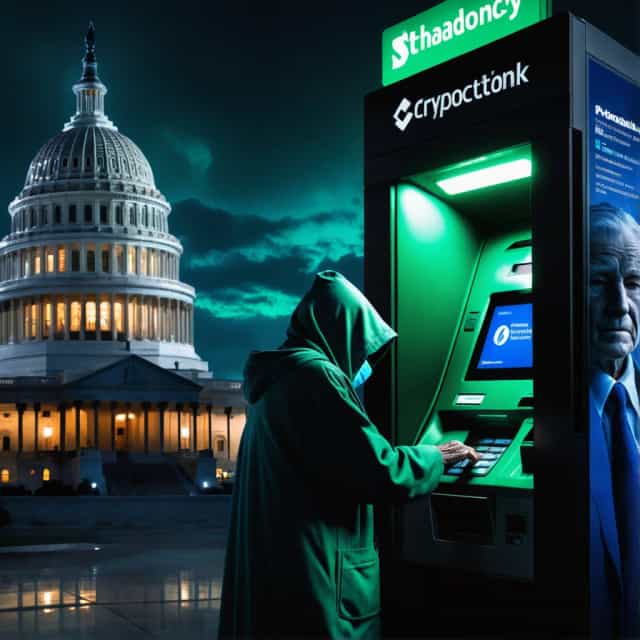
Image source: Block Media
South Korea’s Kospi Index Faces Second Day of Declines Amid Mixed Market Trends and Global Concerns
The South Korean Kospi Index experienced a second consecutive dip on October 25, as conflicting market signals played out between profit-taking by individuals and renewed foreign investor buying. Despite some optimism from foreign inputs, the index remained under pressure, struggling to maintain upward momentum.
Kospi’s Performance in Numbers
The Kospi Index closed at 3,471.11, marking a slight decrease of 1.03 points or 0.03% compared to the previous session’s close of 3,472.14. The trading day began on a weaker note, with the index opening at 3,458.98—a drop of 13.16 points or 0.38%. Data from the Korea Exchange highlighted the thin fluctuations within the broader context of investor uncertainty.
Federal Reserve Comments Shape Investor Sentiment
Market sentiment took a cautious turn following remarks from Federal Reserve Chair Jerome Powell during his speech at the Rhode Island Chamber of Commerce. Powell highlighted that inflation risks remain skewed to the upside, whereas employment risks lean downward. He underscored ongoing uncertainties in the inflation trajectory and labor market outlook.
These comments dampened expectations for aggressive interest rate cuts, impacting U.S. equity markets adversely. This cautious tone spilled over into South Korea’s markets, curbing enthusiasm among investors already navigating mixed domestic signals. Analysts believe Powell’s statements added to concerns about market overvaluation, complicating efforts to identify strong upward catalysts.
Domestic Market Dynamics: Individual Selling Pressures Index
On South Korea’s main board, domestic investors aggressively offloaded shares, net selling KRW 5.378 trillion worth of stocks. This heavy sell-off overshadowed the KRW 1.614 trillion and KRW 2.822 trillion of net buying activity by foreign and institutional investors, respectively, constraining the Kospi's growth potential.
The stock performance among major blue-chip companies remained varied. Samsung Electronics saw marginal gains of 0.59%, extending a streak of foreign investor net buying for 11 consecutive sessions. LG Energy Solution surged by 3.59%, and biopharma player Celltrion logged a modest increase of 0.23%. However, key players like SK Hynix and Samsung Biologics faced declines of 0.28% and 2.01%, respectively. Hanwha Aerospace also weakened, falling 1.13%.
Jaewon Lee, a researcher at Shinhan Investment & Securities, observed, “Foreign investors shifted from morning selling to net buying as the session progressed, particularly in blue-chip names. Nonetheless, the lingering impact of Jerome Powell’s comments and concerns over market valuation persist, leaving gains concentrated in sectors with anticipated strong earnings.”
Kosdaq Index Mirrors Kospi’s Decline
The tech-heavy Kosdaq Index shared in the downward trend, closing at 852.48, down 8.46 points, or 0.98%, from the previous session’s close of 860.94. The index’s opening shows similar weakness, starting at 858.45, a decline of 2.49 points or 0.29%.
Diverging trends were evident among market participants. Institutions appeared more bearish, offloading KRW 1.247 trillion worth of shares, while individual investors and foreign participants adopted a net buying stance, acquiring KRW 1.054 trillion and KRW 486 billion, respectively. However, these buying efforts were insufficient to offset the bearish sentiment.
On the Kosdaq board, robotics leader Rainbow Robotics stood out, bolstering gains with a substantial 8.86% increase. EcoPro BM climbed by 4.17%, and EcoPro rose 2.68%. In contrast, biotech sector stocks witnessed losses, with Alteogen slipping 1.94%, Peptidream dropping 3.28%, and Lygocam Bio plummeting by 5.88%.
Currency Market Reflects Broader Economic Uncertainty
Adding to the bearish tone, the Korean won further weakened against the U.S. dollar in the Seoul foreign exchange market. The won/dollar exchange rate climbed to 1,400.6 KRW per dollar, up KRW 3.1 from the prior day’s close of 1,397.5.
Outlook: Monitoring Global Signals
As South Korea navigates this complex financial environment, investors are closely watching external developments. Key areas include policy signals from the Federal Reserve, fluctuations in the currency market, and sector-specific earnings momentum. While the Kospi faces pressures from domestic and international uncertainties, selective opportunities may arise in high-performance sectors, particularly tech and energy.
The interplay between cautious market behavior, foreign investment trends, and global economic signals will likely guide the index's trajectory in forthcoming sessions.










